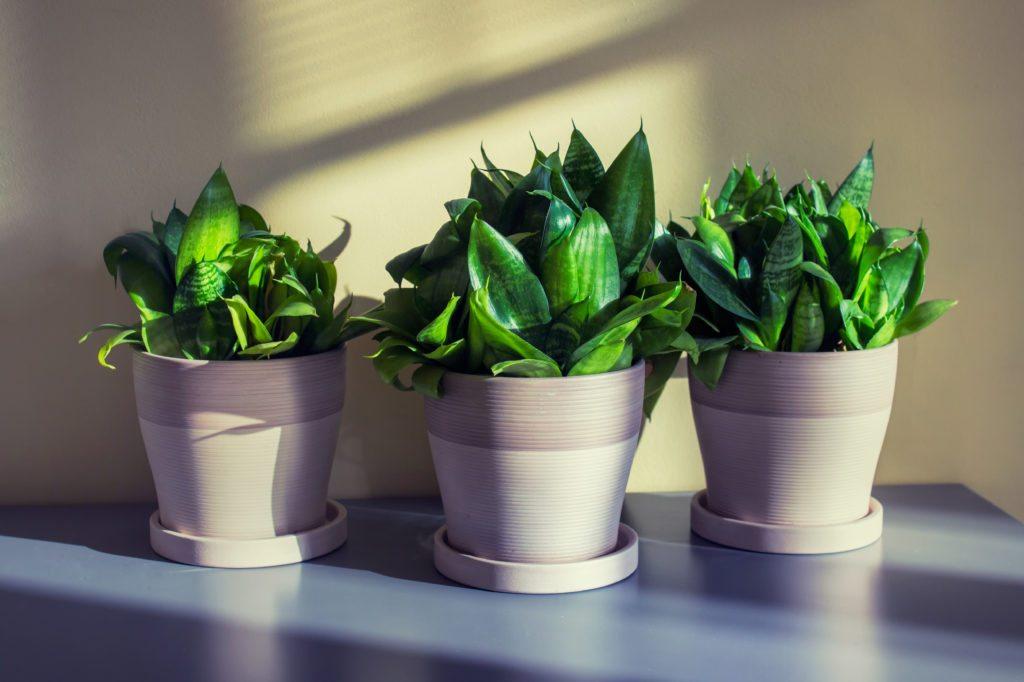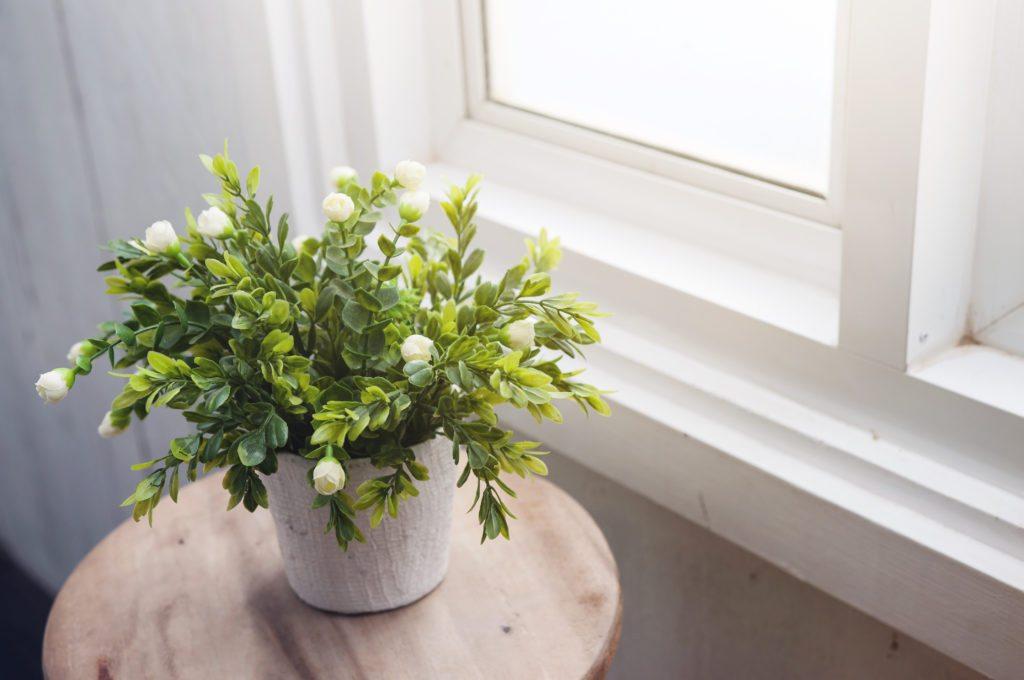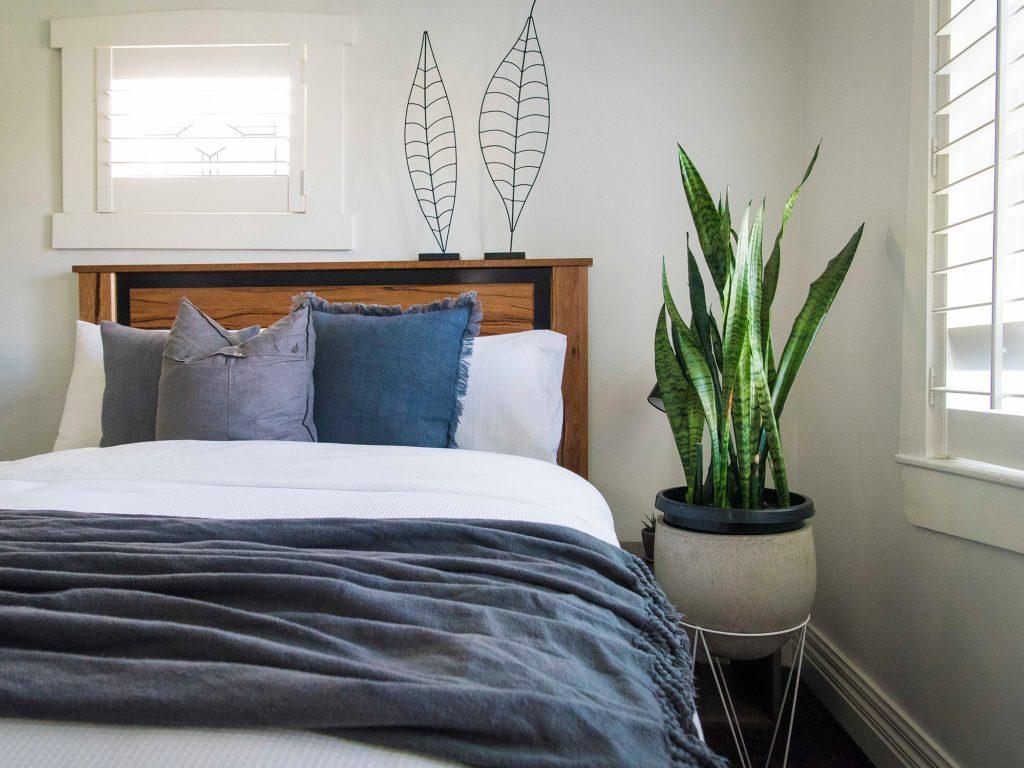Best Plants for Your Bedroom to Help You Sleep
15th Aug 2018
Having a little greenery in your bedroom is a great way to liven up an aging décor or add a splash of color to otherwise muted tones. But did you also know there’s a lot of proof that having plants sharing your sleeping space is actually good for you? Let us share the science behind these claims and discover the best bedroom plants for you.
Firstly, they can actually purify the air in your space, thus reducing allergens and therefore reactions from those who are sensitive. Plants release oxygen, absorb carbon dioxide and regulate humidity - making your indoor air of a quality on a par with that produced by a posh air-purifying machine. With air purifying plants, gone are many reported causes of ailments such as dry skin, colds, sore throats and coughs! This effect can be enhanced by purchasing bedding that uses only eco-friendly dyes that prevent allergies, such as our bedsheet set.
Secondly, they can reduce anxiety and depression, the cause of over 50% of insomnia cases. This calming effect is from two sources – both the action of the plant but also the act of caring for a plant and the psychological benefits. The effects on mental health of actively nurturing a living thing that blossoms and thrives only by one’s care are obvious, and could potentially provide a natural alternative to pills and potions.
Lastly, they can induce sleep. A combination of the previous two points and the scent released by certain plants – which in itself has a relaxation and stress-busting effect – is scientifically shown to send you off to the land of nod quicker and for longer.
Fingers turning green? Here are our recommendations:
Snake Plant
If you aren’t very green-fingered, this nearly-impossible-to-kill plant is for you. Not only is it one of the few plants that absorb carbon dioxide and release oxygen at night, it also features on NASA’s list of the top 10 air-purifying plants. It is fine in low light and only requires minimal watering.

English Ivy
Another to make NASA’s list, this trailing plant is proven to improve symptoms of allergies or asthma. In a 2005 experiment, the American College of Allergy, Asthma & Immunology reported that English Ivy removed 78% of airborne mold in just 12 hours. If you have breathing issues, it’s a great addition to your indoor garden. It is, however, toxic to pets and children, so keep out of reach!
Bamboo Palm
As well as adding a tropical feel to your bedroom, the Bamboo palm is easy to care for. This air purifier will get rid of smells and toxins and loves the indirect sun, so is ideal for a darker space. Bear in mind, if you do place in the sun, it can grow to over 12 feet!
Jasmine
Add a feel of the exotic to your bedroom with Jasmine. Shown to induce a better quality of sleep due to its ability to reduce anxiety levels, it also comes in a choice of bloom color, so is aesthetically pleasing at the same time.

Lavender
There are pillows scented with it, oils infused with it and bath salts made from it, so it’s no surprise that it is one of the best-known sleep-inducers around, with research citing its ability to lower blood pressure and heart rate as well as stress levels.
Gardenia
As well as a dreamy scent, insomnia sufferers may breathe a sigh of relief when they hear the claims that this plant may relieve anxiety, and therefore promote sleep, as effectively as medication.
Spider Plant
Looking for a cheap air cleanser? Look no further. As well as promoting sleep by increasing oxygen levels and absorbing smells, those with allergies will be thrilled to hear that NASA tests showed it removed nearly 90% of the potentially cancer-causing chemical formaldehyde - found in household products such as grouts and adhesives - from the air.
Whichever plants you choose, remember that the calming effect of indoor plants can turn your bedroom into a sanctuary for you to enjoy whenever you feel the need – day or night. And the pleasure you get from simply owning, caring for and watching the growth of your plants could provide just the sleep tonic you need.

